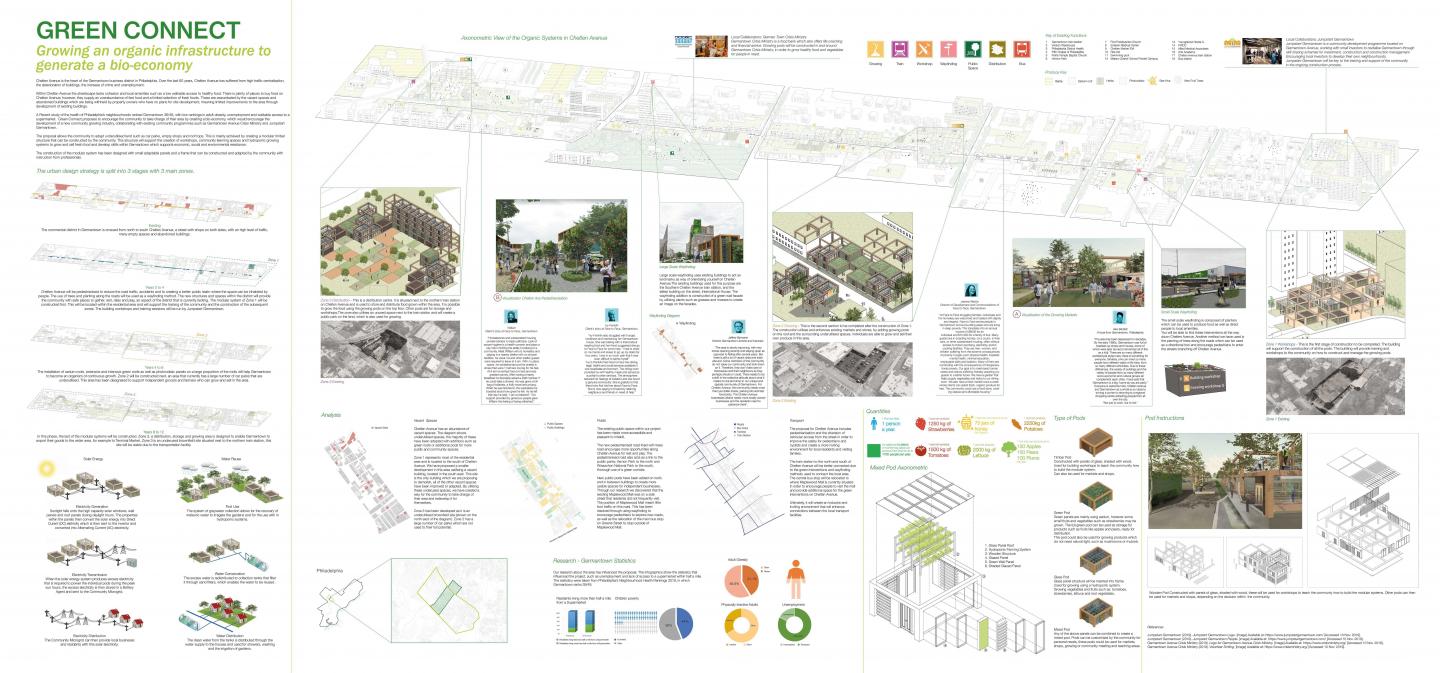Chelten Avenue is the heart of the Germantown business district in Philadelphia. Over the last 60 years, Chelten Avenue has suffered from high traffic centralisation, the deterioration of buildings, the increase of crime and unemployment.
Within Chelten Avenue the streetscape lacks cohesion and local amenities such as a low walkable access to healthy food. There is plenty of places to buy food on Chelten Avenue; however, they supply an overabundance of fast food and a limited selection of fresh foods. These are exacerbated by the vacant spaces and abandoned buildings which are being withheld by property owners who have no plans for site development, meaning limited improvements to the area through development of existing buildings.
A Recent study of the health of Philadelphia’s neighbourhoods ranked Germantown 36/46, with low rankings in adult obesity, unemployment and walkable access to a supermarket. Green Connect proposes to encourage the community to take charge of their area by creating a bio-economy, which would encourage the development of a new community growing industry.
The proposal allows the community to adapt underutilised land such as car parks, empty shops and roof tops. This is mainly achieved by creating a modular timber structure that can be constructed by the community. This structure will support the creation of workshops, community learning spaces and hydroponic growing systems to grow and sell fresh food and develop skills within Germantown which supports economic, social and environmental resistance.
2019
0000
Roberto Zanini, Gabrielle Beaumont, Lily Street, Kate Hopkins, Dominik Augustynowicz, Noah Harrowes, Lois Melling
Favorited 1 times


